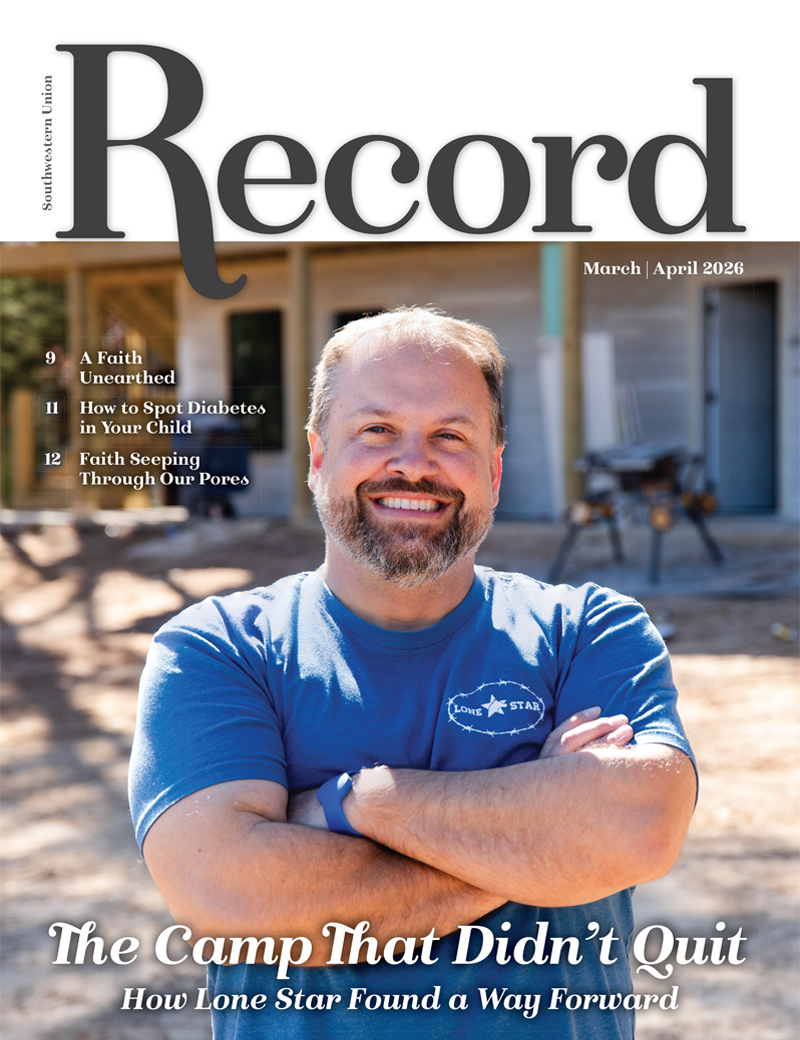Love Came to Visit

“It was hot,” said Demetrius Bradley. “I needed to find somewhere where the air conditioning was working, so I went to the chapel.” Upon entering the interfaith chapel near his cell at Louisiana State Penitentiary (LSP) at Angola, Bradley discovered the air conditioning was working perfectly. “The speaker was quite interesting, too, so I stayed.”
The speaker that morning was a pastor from Baton Rouge Seventh-day Adventist Church. When the service ended, he invited Bradley to return the following week. “It was hot again the next Saturday, so I went back,” Bradley said with a laugh. “That’s when I met Elder Henry, and his sweet spirit just drew me in. I went back every week after that.” That was in 2011.
In 2012, Bradley was baptized into the Adventist Church. He quickly took a leadership role within the Adventist congregation, an extension of the Baton Rouge church, that met regularly at the prison. A few years later, he was transferred to another location on the campus for “missionary duty,” a program in which inmates take on spiritual mentorship roles for their peers.
LSP at Angola is the largest maximum security prison in the United States, with more than 6,300 inmates and 1,800 employees. Situated on 28 square miles, the property, which was once occupied by a slave plantation, now operates as a mostly self-contained miniature city, including employee residences, farmland, a fire station, several manufacturing facilities, two cemeteries, an airstrip, training centers and even its own media outlets. There is also an Adventist congregation, where Laurence Henry, and his wife, Veronica, along with a few other church members, worship with prisoners twice per month.
“They have beautiful chapels and the chaplains are happy to have us there,” Henry commented. This regular gathering is not just a worship service, either; the group is an officially annexed arm of the Baton Rouge church. And though the church’s ministry team is allowed to attend only two weekends a month, interested inmates meet for church every Sabbath, with leaders like Bradley leading the service on weeks the Henrys or Kevin Jenkins, a fellow ministry leader, aren’t there.
Members of the Baton Rouge church have been serving the community of Angola for more than 30 years, leading church services, Bible studies and, periodically, communion. The ministry has seen occasional baptisms and has developed a ministry by the inmates of service to those in the prison hospital or hospice.
More than religion, the church preaches love. The goal is to show love as Jesus described in Matthew 25:36, “I was in prison and you came to visit me.”
“There’s no pressure, it’s just true care and compassion,” Bradley shared. “They want to know if we’re okay, and they ask how they can help us grow spiritually. That love did wonders for me and my psyche.”
Before being allowed to hold services at the prison, participants are required to complete protocol training. This teaches visitors what is and is not allowed within the prison complex, and the possibility of dangerous situations during their visit. Once the training is complete, participants submit documentation for clearance before they are allowed inside.
The church also ministers to Raymond Laborde Correctional Center in Cottonport, Louisiana. “At this location, we are no longer allowed to bring our Bibles in and out due to drugs being smuggled to inmates that way,” Henry explained. “Now we have to leave Bibles at the chaplain’s office at the prison and use those Bibles while we’re there.”
Driving to each of these locations from the Henrys’ home is 60-90 miles one way, and therefore requires solid commitment. Regardless of the risk and requirements, the ministry is clearly worthwhile.
“I was out of focus for so long, and it was hard to admit I wasn’t as stable as I thought I was,” Bradley said. “This church at Angola allows you to grow little by little, and it’s exactly what guys like me need.”
Bradley was paroled on February 23, 2025. As of the writing of this article, he has not been able to visit the Baton Rouge church, as he is still completing the preliminary tasks post-release and is currently living 90 minutes away from the church. But, he assured, his attachment to the church remains strong. “I promised Sister Henry—whom I call ‘Mama’—I would be there, and I will be,” he said with conviction. “My commitment won’t change.”
The Henrys will not let their commitment to the ministry waver, either. They are passionate about serving the community of prisoners at Angola, following in Christ’s footsteps.
“The people are human beings God died for, and He loves them,” Henry stated firmly.
Tyrone Boyd, coordinator of Southwestern Union Prison Ministries, agreed. “Prison ministry is essential because it reflects Christ’s love for all people, including those often forgotten by society,” he said. “Many incarcerated individuals are searching for hope, healing, and a second chance, and the Gospel provides that transformation. This ministry is a direct expression of Christ’s mission—it’s about redemption, restoration and reminding people that no one is beyond God’s grace.”
Henry added that this ministry affects more than just the inmates. “It’s probably one of the best things that has ever happened to me,” he said. “This ministry has impacted my personal spiritual life, and if I could go every Sabbath, that’s where I would be.” He added that there is great need to develop a reentry program to assist former inmates as they readjust to society outside the prison.
Bradley concluded, “The care the Henrys showed me focused me internally. They came to spread the word of God, yes, but before they did that, they showed us love. And that love brought me back.” a
By Becky St. Clair. St. Clair is a freelance writer and lives in California with her family. Demetrius Bradley, Laurence Henry and Veronica Henry are members of the Baton Rouge Seventh-day Adventist Church in the Arkansas-Louisiana Conference.


